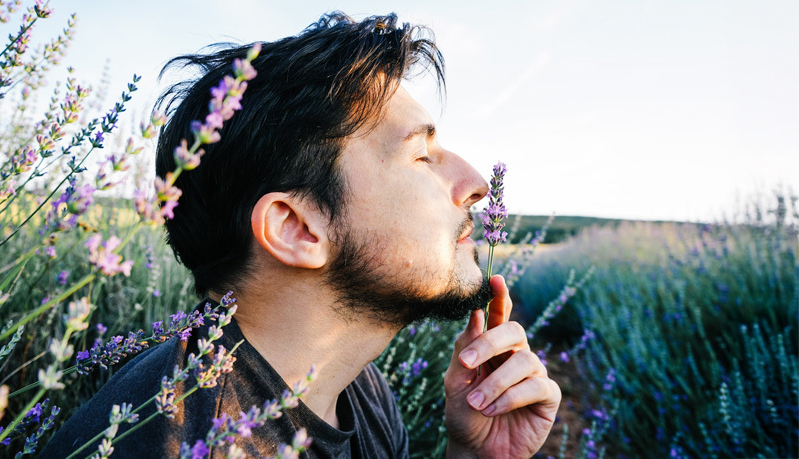
Many of us who attend Christian worship services experience a sense of peace as we pray, kneel, and ask for forgiveness. However, peace can feel quite fleeting and temporary since we humans tend to be restless by nature. We experience conflict in our relationships and internally, often ruminating over fears and injustices.
Is peace possible?
Basic human nature creates a restlessness as we seek novelty and forward movement in our lives, and our culture reinforces the go-go-go keeping us longing for, but not quite experiencing peace. Conflicts between nations over resources and territory, and deep divisions across groups of people based on religion and ethnicity make us wonder, is peace possible?
For good reason, the second week of Advent asks us to focus on the theme of peace. It’s what we seek and pray for. It’s what we can and should practice in our own lives. The Advent candle that we light on the second Sunday is the Peace Candle, reminding us of the promise that Christ will bring peace to a troubled world.
Why is peace the second Sunday in Advent?
The “Prince of Peace” taught non-violence and love of neighbor. There are promises of a peace that surpasses understanding and a world that will be harmonious. Advent asks us to ponder how we can be peacekeepers in our own lives and how we can advocate for peace in the world.
For Jesus said, “Peace I leave with you; my peace I give to you. Not as the world gives do I give to you. Let not your hearts be troubled, neither let them be afraid.” (John 14:27)
How psychology can help us understand personal peace
Psychology says that finding peace is a journey inward and involves cultivating a steady emotional state and sense of balance within yourself. Here are some tips for finding personal peace:
- Pray for others. Offering prayers for others, both those we love and those we do not, helps us develop compassion.
- Practice mindfulness. Acknowledge and accept your thoughts and emotions, seeking insight into what matters to you.
- Practice being present in the moment. Using the five senses as focal points can be really helpful.
- Develop good habits. Sleep, rest, meditate, walk, exercise, garden, or practicing gratitude can promote a positive sense of well-being.
- Be kind and generous. Kindness can positively change your brain chemistry and mood.
- Let go of what you can’t control. Forgive yourself and others to soothe negative feelings.
- Create healthy rhythms of work and rest. Focus on what’s important, and make time to savor the moment and enjoy life.
- Seek beauty and experiences of elevation and awe. This can be done by seeking God, enjoying nature, art, or music, or with helping others.
Desires for peace should spur us to offer interpersonal peace
Practice acts of kindness, actively listen to others, be respectful, forgive readily...
To offer peace to others, you can practice acts of kindness, actively listen to others, be respectful, forgive readily, offer a helping hand, speak with a gentle tone, engage in thoughtful communication, and promote understanding by considering different perspectives. Essentially, strive to treat others with compassion and empathy, even when disagreements arise.
Reflection: Advent peace
- What habits might offer you more peace this Advent season?
- What beliefs support peaceful thoughts and feelings?
- What actions do you need to take today to encourage and gain more peace?
- How can you offer peace to others?
Originally published by the Thrive Center. Republished with permission.
Jilleen Westbrook, Ph.D. joined the staff of the Thrive Center for Human Development in 2022. She earned her Ph.D. in Economics from Claremont Graduate University and has taught at Temple University, University of Southern California (USC), and the Claremont Colleges. Her academic work involved empirical investigations of psychological effects on markets that result from policy decisions. Before joining, the Thrive Center, she worked as a consultant. Dr. Westbrook has long been interested in issues of faith and well-being, particularly in the practices that encourage mental, physical, and spiritual health.
The Thrive Center for Human Development walks with followers on the path to spiritual health, helping them to put knowledge into practice to experience a full and vibrant life. Formerly founded in 1996 as the Center for Research in Child and Adolescent Development (CRCAD), the Thrive Center was established in 2011 within the School of Psychology & Marriage and Family Therapy at Fuller Theological Seminary. Thrive is an applied research center that exists to catalyze a movement of human thriving, with and for others. The center conducts and collaborates with other researchers on cutting-edge psychological questions addressing the most pressing issues of spiritual health and thriving in a pluralistic world. It is staffed by real people with real lives and persistent hopes for wholeness and a flourishing world. To this end research is converted into resources designed to bring about change and spiritual health.
The Thrive Center also has a podcast on spiritual health, wholeness, and a life of thriving called "With & For". This free resource is hosted by Dr. Pam King who invites her guests to explore together the depths of psychological science and spiritual wisdom to offer practical guidance toward spiritual health, wholeness, and thriving on purpose. Season 1's 13 episodes are already available wherever you source your podcasts. Season 2 will launch on January 6, 2025.





